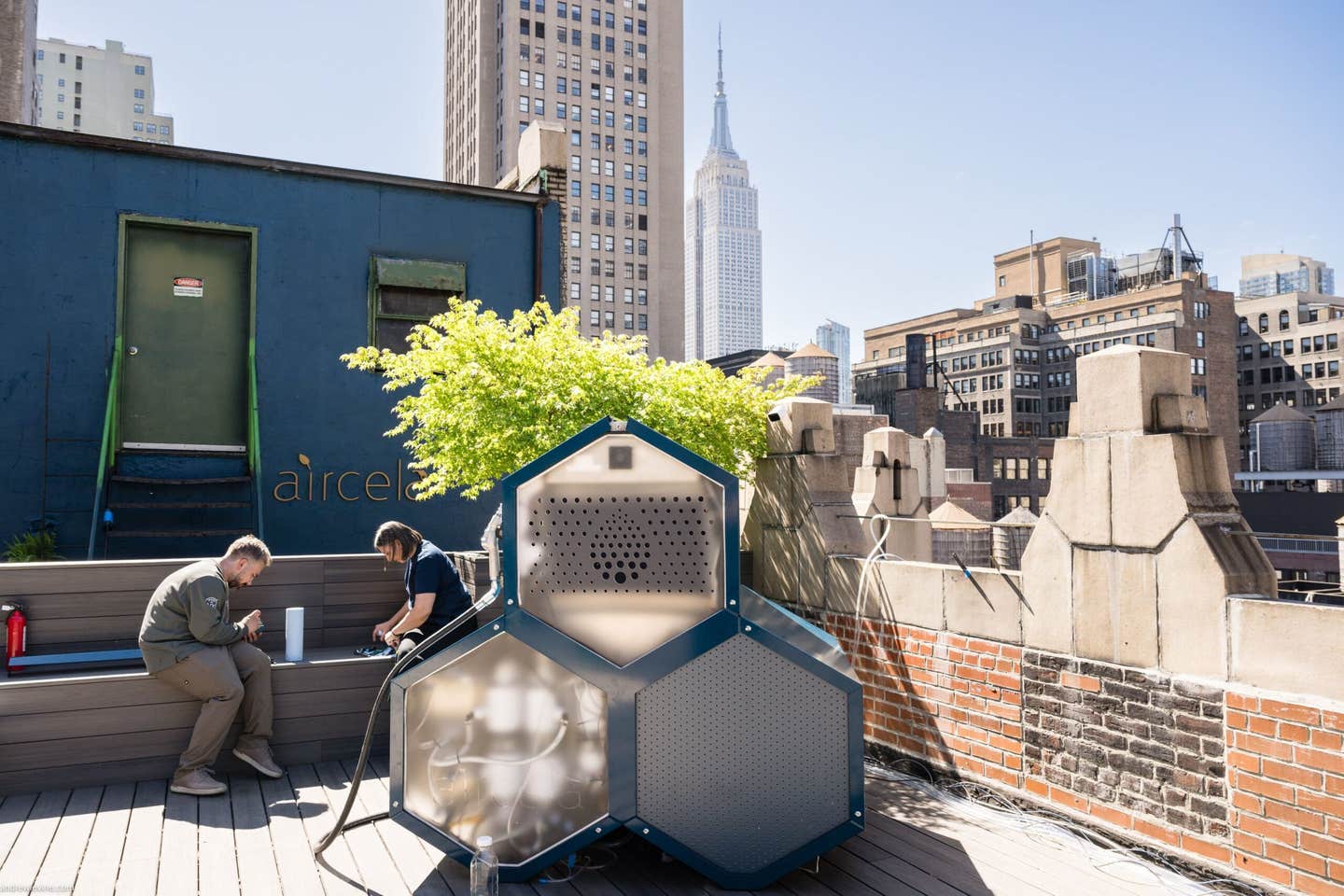Scientists re-engineer a patient’s own T cells to target and destroy cancer cells
A new HSP-CAR30 CAR-T therapy is delivering lasting remissions in patients with refractory lymphoma, showing promise in early trials.

HSP-CAR30 CAR-T therapy offers lasting remission in refractory lymphoma, showing 100% response in early trials. (CREDIT: Shutterstock)
Hodgkin lymphoma and other malignancies that express the CD30 protein have been the scourge of oncologists for decades. For patients whose cancer returns or is treatment-refractory, choices are minimal and temporary.
Traditional therapies will sometimes suppress the cancer, but the illness more often than not manages to return, at times in more aggressive incarnation. That's the reason why a new experimental cell therapy, HSP-CAR30, is gaining attention—and not just in the scientific community.
Spanish researchers have designed this treatment to do something its predecessors rarely did: last long enough in the body to keep cancer at bay. Early results show it can deliver what many physicians and patients have been waiting for—stable remission.
How HSP-CAR30 Distinguishes Itself
CAR-T therapies reprogram a patient's own T cells to target and destroy specific cancer cells. In this case, the target is CD30, a protein found on the outside of tumor cells in certain lymphomas. The problem with earlier versions, known as CART30, has been that they have a short half-life in the body. Even when they were effective at first, they fizzled out quickly, giving the cancer a second chance.
The new approach, developed at the Sant Pau Research Institute in partnership with Hospital de Sant Pau and the Josep Carreras Leukaemia Research Institute, attacks a hidden region of the CD30 protein—a site that cannot be dropped by the tumor to escape detection so easily. This clever twist on targeting may be only one reason why the therapy seems to be sticking around.
The team also reengineered how the T cells are cultured before they are infused. They redeveloped the activation procedure and added interleukin-21 to a combination already containing IL-7 and IL-15. The combination prompts T cells to retain a "memory stem–like" characteristic, making them survive longer and strike cancer with enhanced vigor when exposed to it again.
As recounted by Dr. Laura Escribà, director of CAR-T manufacturing quality control, the premise was to have a reserve army in the patient's body: "We want the patient's immune system to have an arsenal of defense cells in reserve just in case the cancer tries to come back."
Impressive Early Trial Results
The first human trial—a phase I clinical trial—enrolled ten patients whose Hodgkin lymphoma or CD30-positive T-cell lymphoma had come back after multiple earlier treatments. They were patients with few alternatives.
The trial outcomes were encouraging. All of the subjects were responsive to the therapy. Complete disappearance of their cancer on scans and in laboratory tests was seen in half. A single other patient had complete remission after the second infusion. More importantly, 60% of complete responders remain cancer-free with follow-up of nearly three years.
The most unexpected finding was the fact that the global rate of response was 100%, which is quite uncommon in patients who have undergone multiple lines of treatment," said Dr. Javier Briones, lead investigator for the trial. "Moreover, 50% of them achieved complete remission, which indicates that the disease totally disappeared in imaging studies and in clinical tests."
A Tolerable Safety Profile
Highly effective cancer treatments come with big side effects, but HSP-CAR30's safety profile to date has been reassuring. Six patients experienced grade 1 cytokine release syndrome—a mild immune reaction of fever and fatigue. None experienced neurotoxicity, a bad side effect that has occurred with other CAR-T therapies.
"This is significant," Dr. Briones emphasized. "It indicates that the persistence of CAR-T cells within the body has a real and enduring impact on the disease, which is exactly what we're looking for in this type of treatment."
At maximum activity in the body, the transplanted cells were essentially central memory and memory stem–like T cells. They are distinguished by their longevity and by their ability to expand once more rapidly should the cancer return. In 60% of evaluable patients, modified cells remained measurable one year after treatment.
Building Momentum in Phase II
Encouraged by these results, the researchers moved into a larger phase II trial. So far, 32 patients have been treated, and the trial recently opened to 10 more patients. Over half of the patients have achieved complete remission.
The expansion will make the outcomes stronger and provide a foundation for a more solid foundation for future growth of this therapy," added co-investigator Dr. Ana Caballero. "If we can demonstrate in larger studies that this method is successful over the long term, we might be experiencing a paradigm shift in treating refractory CD30+ lymphomas."
Why Persistence is Important in CAR-T Therapy
One of the biggest hurdles to delivering CAR-T therapy to CD30-positive tumors has been maintaining a beneficial level of the modified cells in the body. When the cells decay too quickly, relapse is essentially inevitable.
By finding a stable target site on the CD30 protein and using growth factors that suppress the T cells from getting too differentiated, HSP-CAR30 attacks the problem on two fronts. This double-pronged approach not only guarantees that the treatment will have an effect in the short term but also has an active vigil over the possibility of disease recurrence.
CAR-T therapies for other forms of cancer—B-cell leukemias—have already proved that it is possible to achieve long-term remissions if the cells survive. Here, in this Spanish-led study, the same principle is being proved to have effect on CD30+ lymphomas, a group of cancers that has proved resistant to long-term control.
What's on the Horizon for HSP-CAR30
On the horizon are to confirm these observations in larger and more diverse patient cohorts. If the findings hold, it could lead to regulatory approval, with HSP-CAR30 available to more patients outside of clinical trials. Researchers also want to know if the same strategy—targeting a stable part of a protein and growing memory-dense T cells—can work for other recalcitrant-to-treat cancers.
For now, the early signs are encouraging. Patients who previously faced a virtual certainty of relapse are now having long remissions, and side effects remain manageable. In the guarded jargon of cancer science, that interaction is as upbeat as can be.
The evolution of the therapy underscores how quickly CAR-T science moved in a space of a few years. With the enhancement of both the cellular content of the therapy and its biological target, researchers have opened a potential new chapter in the war against Hodgkin lymphoma and related cancers.
If confirmed in ongoing and forthcoming trials, HSP-CAR30 could be a paradigm break in the treatment of such diseases—not as transient victories in a long fight, but as the introduction of lasting peace.
Research findings are available online in the journal ScienceDirect: Blood.
Related Stories
- New CAR-T therapy achieved complete remission in 70% of aggressive cancer patients
- Common plant virus shows stunning results in targeting and destroying cancer cells
- Kidney transplant patients could live drug-free thanks to new stem cell therapy
Like these kind of feel good stories? Get The Brighter Side of News' newsletter.
Mac Oliveau
Writer
Mac Oliveau is a Los Angeles–based science and technology journalist for The Brighter Side of News, an online publication focused on uplifting, transformative stories from around the globe. Passionate about spotlighting groundbreaking discoveries and innovations, Mac covers a broad spectrum of topics including medical breakthroughs, health and green tech. With a talent for making complex science clear and compelling, they connect readers to the advancements shaping a brighter, more hopeful future.



